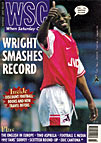 Gary Oliver analyses the impact of any premature elimination from European football for Rangers
Gary Oliver analyses the impact of any premature elimination from European football for Rangers
Following Rangers’ trouncing in Gothenburg, acting skipper Jonas Thern complained that he had suffered cramp through having to cover for colleagues who had gone AWOL. But it was not only certain players whose whereabouts were unknown: Walter Smith vanished until the following week, it later emerging that he had been in hospital for a minor operation. Numbed by watching his latest batch of expensive imports capitulate in almost unimaginable fashion, Smith would have had little need for an anaesthetic.
With the manager incommunicado, we instead heard plenty from his organ grinder, David Murray. Rangers’ line-up in Sweden had included five summer signings; consequently, the chairman attributed the second-half collapse to an absence of “telepathy”, their having played only one league match together. Ah, not the usual mantra of too many games, then; this time, there had been too few.
Walter Smith could, of course, have allowed his European side to bond six days earlier against Hamilton Accies. But that was only the Coca-Cola Cup and, hey, what else are reserve sides for?
Many commentators muttered darkly of the effect Rangers’ failure in Sweden might have on the national coefficient. That, though, did not prevent widespread schadenfreude: for Scots whose allegiance lies elsewhere, Rangers’ repeated travails in Europe provide more entertainment than anything on the Edinburgh Fringe.
Murray tried to appear unfazed at the gates to El Dorado being slammed in his face. “What happened is not a financial disappointment because the UEFA Cup can make us as much money,” he protested unconvincingly. The fact that the minor competition, unlike the Champions League, grants Murray the freedom to negotiate all TV rights will, I’m sure, be of great consolation to Bluenoses everywhere.
David Murray also remained unrepentant at charging £27 for the second leg against Gothenburg: “This is the price that has to be paid to support Rangers playing at the highest level in Europe. I have sacrificed money to help Rangers by giving up some of my equity and there are times we need our supporters to make similar sacrifices.”
But David Murray is no Lord Bountiful. His ‘sacrifice’ was to dilute a shareholding which has, in less than ten years, increased exponentially in value. And although Murray’s mint has been entirely due to supporters buying season tickets, debentures and any tat carrying the club crest, still he could not desist from chiding disgruntled fans: “If we had not brought in Joe Lewis with his £40 million investment it would have cost the fans £100 a ticket to see the team we have put on the park this season.”
It was a theme to which he returned during the inquest into Gothenburg, claiming on TV that supporters in Scotland have for too long had football on the cheap – a view which confirmed that his response to any difficulty is to seek new ways of increasing income.
It is for this reason that Murray, in cahoots with Celtic’s Fergus McCann, is expected to soon make public plans for an English-style Premiership in which the top ten has autonomy over television contracts and other commercial activities. During the very week Rangers flopped in Sweden, McCann wrote in Celtic’s annual report of being “hindered by the quality, structure and limited markets of the Scottish game” – a statement which it is impossible to read without picturing David Murray nodding vigorously.
Yet there is already more cash swilling around Ibrox than is being put to constructive use. After a decade of so-called revolution, no home grown player is close to being a first choice while even the long promised “purpose-built training ground” has failed to materialize (one senses David Murray yearns more for the hotel and conference facilities which, naturally, are intended to go up alongside it).
Instead, obscene sums continue to be paid for, and thrown at, what Murray has laughingly described as “the best players money can buy”. Yet over the years the mercenary troop has contained many of either moderate ability or questionable temperament.
Only Brian Laudrup has added significantly to the collective competence. On the debit side of the ledger, though, is a lengthy list. Basile Boli and Oleg Salenko both arrived to cheers but left amidst catcalls, while the club presently is having no joy punting misfits Erik Bo Anderson and Peter van Vossen.
And although fixtures such as Joachim Bjorklund and Jorg Albertz could not be described as duds, neither have they elevated Rangers to a higher plane. Sure, these guys are good enough to keep winning Premier Division titles – but then so were Terry Hurlock, Nigel Spackman and Kevin Drinkell.
As for Europe, it’s ironic that, having long bleated of being hamstrung by the three foreigners ruling, Rangers’ one creditable campaign – 1992/93 – was the consequence of prosaic types like John Brown and Stuart McCall playing out of their skins. Rangers might still benefit from fielding a few similar figures who have reasons other than money for being at Ibrox.
It may be too early to pass judgement on Rangers’ new cast, but in Gothenburg they simply followed what has become a familiar script. Days before that debacle, David Murray was explaining how Rangers avoid the contractual disputes which have plagued Celtic, and insisted that in signing players from abroad “nothing is left to chance”. Nothing, that is, except for their ability to win through the qualifying rounds of the European Cup.
From WSC 128 October 1997. What was happening this month